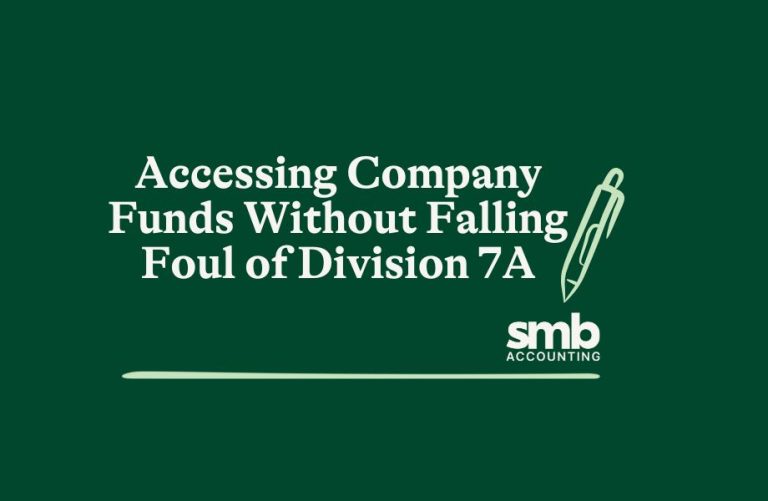Navigating the complexities of special needs audits can seem daunting for many business owners. However, understanding their critical role and implementing structured preparations can significantly benefit your company’s operational integrity and compliance standards. Special needs audits involve thorough reviews of business practices, generally tailored to specific requirements or areas within an organisation that handle sensitive data, operate under strict regulatory oversight, or that have unique operational processes distinguishing them from standard procedures.
These audits are pivotal not only for maintaining compliance with legal standards but also for fostering trust among clients, stakeholders, and regulatory bodies. By adhering to a comprehensive audit process, we can identify potential risks early, allow for timely corrective actions, and ultimately enhance the efficiency and security of our operations. Such proactive financial governance aids in fortifying a business’s reputation and can significantly contribute to its long-term success.
What Are Special Needs Audits and Why Are They Crucial?
Special needs audits are targeted examinations focused on specific aspects of a business’s operations or financial situations that require particular scrutiny. They differ from regular audits by honing in on areas under unique stress or where there is a higher risk of non-compliance due to the specific nature of the business’s activities. These audits are crucial because they help ensure that businesses not only comply with general financial and operational regulations but also adhere to additional standards critical to their special circumstances.
In our experience, special needs audits are indispensable for sectors that handle sensitive data, are subject to stringent regulatory requirements, or where financial transparency is paramount. They provide reassurance to stakeholders that all operations, despite their unique aspects, are running smoothly and according to the law. These audits protect against financial misstatement, fraud, and other risks that could significantly impact the company’s financial health and reputation.
Key Steps to Prepare for a Special Needs Audit
Preparing for a special needs audit can be daunting, yet with a systematic approach, it becomes manageable and less stressful. First, understanding the specific requirements of the audit is key. This involves clarifying the scope with the auditors to ensure all parties know which aspects of the business will be examined. We advise organising a pre-audit meeting with the auditors to discuss the areas of focus and any concerns.
Following this, gathering and organising all relevant documents is crucial. This process should be meticulous, ensuring that all financial records, transaction logs, contracts, and compliance documents are up-to-date and accessible. We recommend using a checklist tailored to the specifics of the special needs audit to ensure no important document is overlooked. Training staff and conducting internal reviews before the auditors arrive can also help in identifying any potential issues early, allowing them to be addressed proactively, thus smoothing the audit process.
Common Challenges During Special Needs Audits and How to Overcome Them
Special needs audits often uncover unique challenges that aren’t typically encountered in standard financial audits. One common issue is the complex nature of the regulations governing specific industries or activities that may be difficult to interpret and apply correctly. To tackle this, we ensure comprehensive training and continual education so that our team stays abreast of the latest regulatory developments and application methods.
Another prevalent challenge is the resistance from staff members, who may be apprehensive about the audit process. This can be mitigated by cultivating a culture of transparency and continual organisational improvement. We facilitate open discussions about the purpose and benefits of the audit, reassuring staff that the audit is a protective measure for both them and the organisation as a whole.
Best Practices for Post-Audit Actions: Ensuring Continuous Improvement
After a special needs audit, the work is not complete with the final report. A crucial step is to carry out the recommendations provided by the auditors. We typically establish a specific action plan, assigning clear responsibilities and timelines to ensure these recommendations are implemented effectively. Regular follow-ups and internal mini-audits help to monitor progress and ensure no area is overlooked.
Also, we see substantial benefits in maintaining an ongoing dialogue with the audit firm. Their insights are invaluable, not just for compliance, but also for refining our processes and systems. This proactive approach ensures continuous improvement and can significantly reduce the stress and workload for the next audit cycle.
Conclusion
Navigating through special needs audits requires a dedicated approach encompassing understanding, preparation, responsive action, and an ongoing commitment to improvement. We at SMB Accounting are committed to providing detailed guidance and support throughout this process. By partnering with us, you ensure that your business is not only prepared to meet the rigorous demands of a special needs audit but also positioned for continuous operational enhancement.
Contact our Sunshine Coast accountants today to discuss how we can assist you with your next special needs audit and help foster an environment of compliance and improvement within your organisation.




